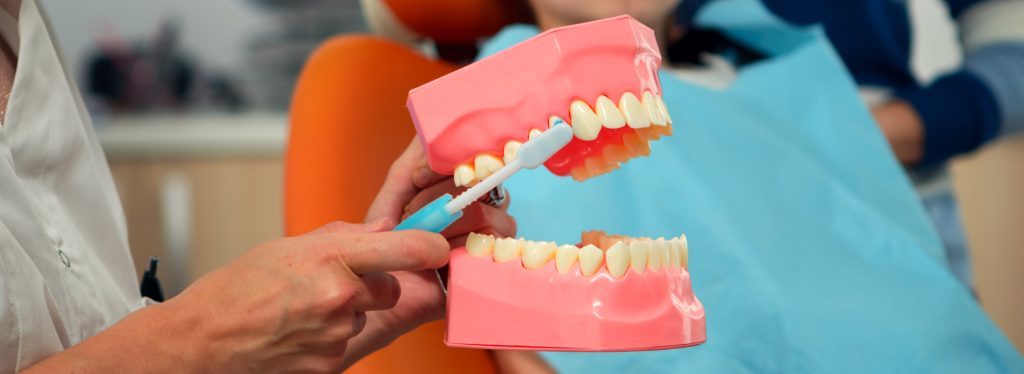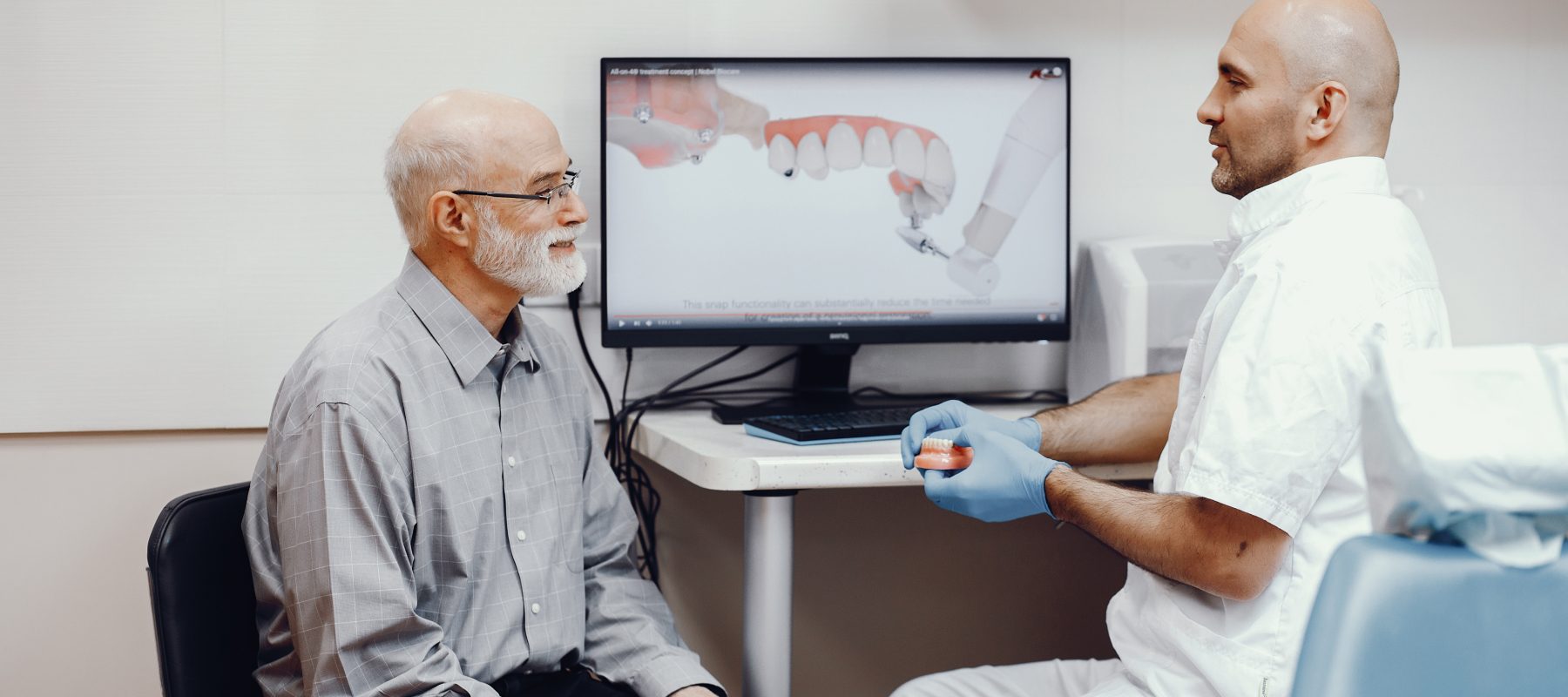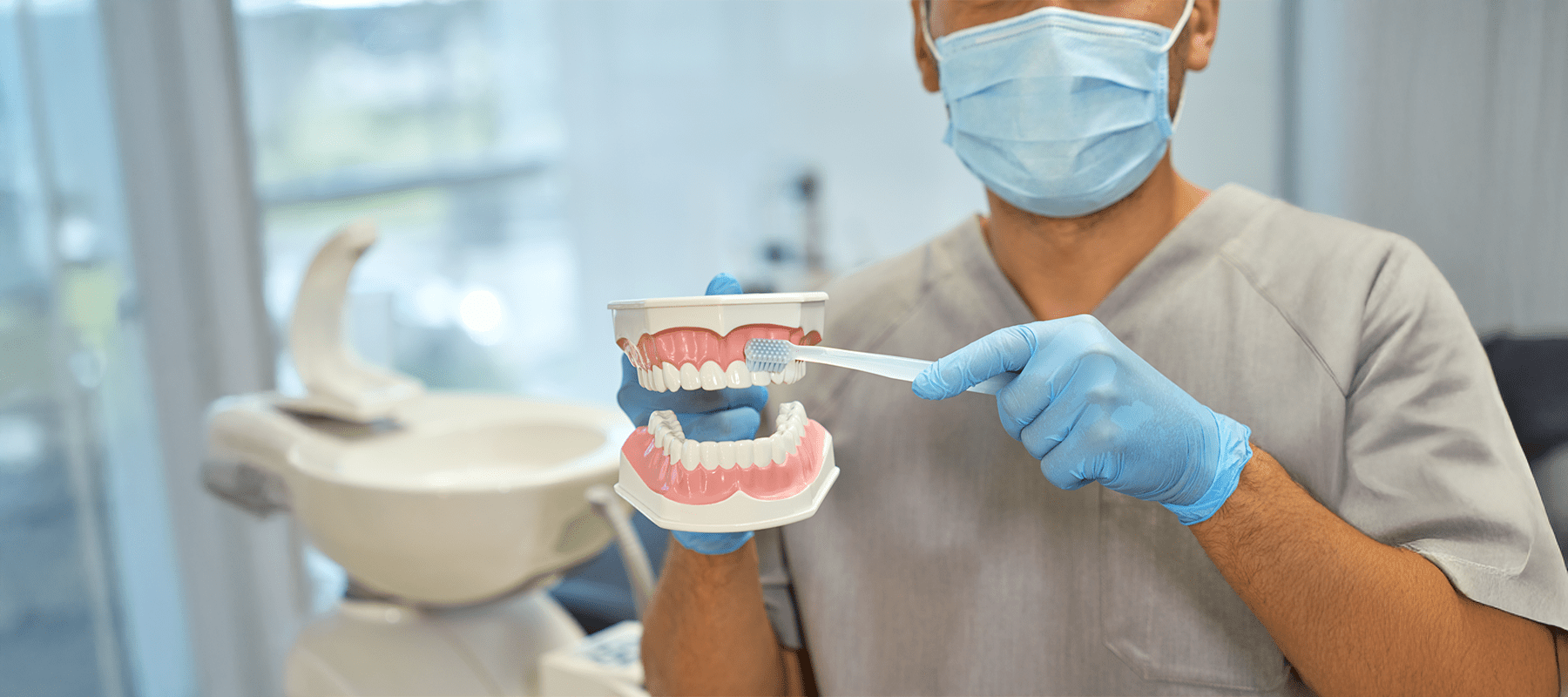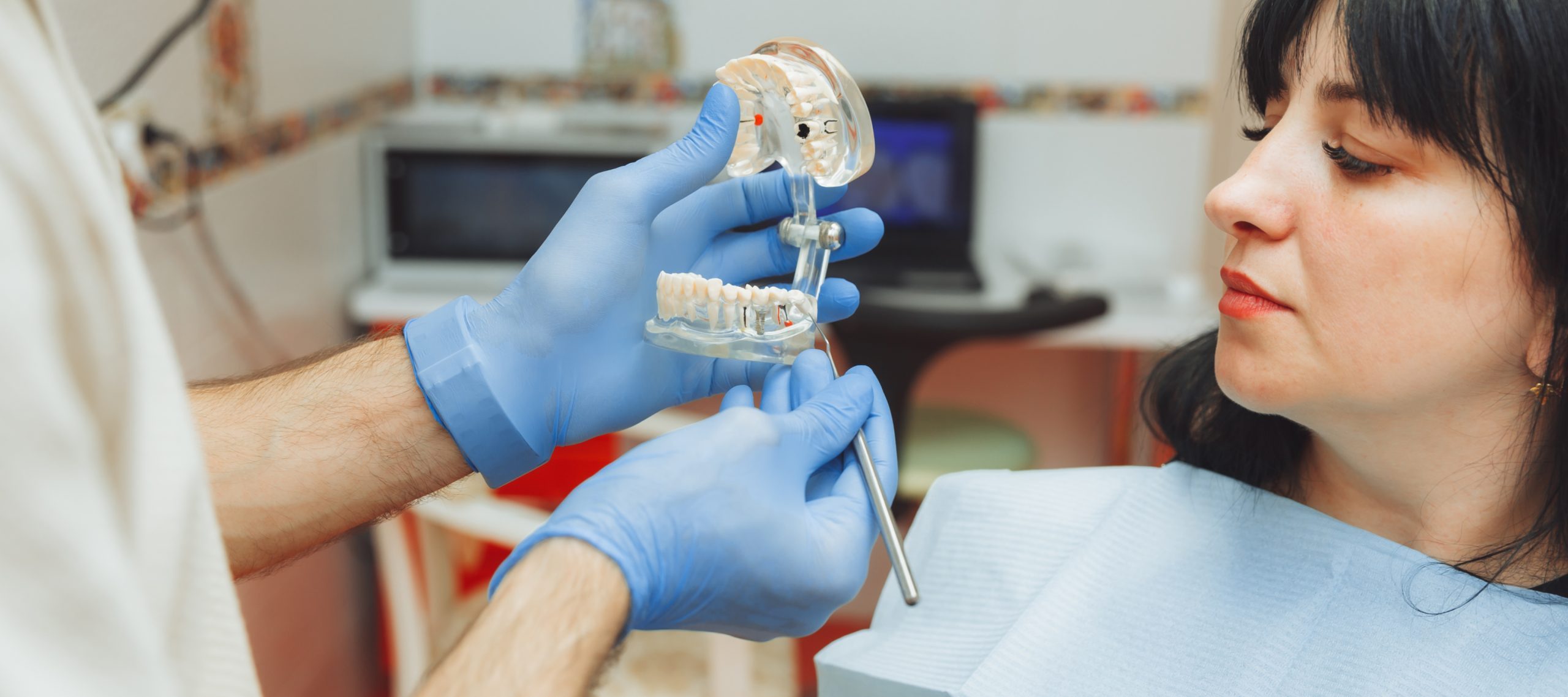Whenever we need a replacement for our missing, broken, or damaged tooth, we have two options: Dental Bridge and Dental implants. Both of these dental restoration treatments offer excellent results if performed correctly. From restoring your teeth’s function to improving your oral hygiene, dental bridges and implants can provide a sustainable result. However, individuals with a missing tooth often contemplate choosing between these two. This is why dental bridge vs. Implant is one of the most discussed topics in dentistry.

If you have the same question, read this article. Here, we will discuss the benefits and disadvantages of both these dental restoration treatments. We hope this fruitful discussion will help you understand whether you should choose dental bridges or implants.
Dental Bridges & Their Benefits
As mentioned, to understand which dental treatment is more appropriate, you must know its benefits and drawbacks. To begin with this discussion, let’s focus on the benefits of dental bridges.

Non-surgical treatment
One of the most notable benefits of dental bridge is that it never involves any surgery, making it a simple and painless dental procedure. While other dental treatments often involve cuts and surgeries, this simple procedure offers a permanent tooth replacement without making things difficult. Therefore, most elders choose to go with a dental bridge.
Immediate Result
Individuals who need tooth replacement immediately must choose this fast and effective restoration treatment. Compared to other dental treatments, dental bridges are easy to implant. Furthermore, they offer immediate results. One can return to regular eating habits within 2-3 days of this procedure, making it more convenient and practical.
Restores & Improves your oral functions
A damaged, broken, or missing tooth often impacts your ability to chew. Such inability usually affects oral function and makes it hard to chew solid foods. However, dental bridges can restore your ability to eat solid foods. Dental bridges can improve your chewing ability and permanently replace lost or broken teeth. They can also support teeth alignment and promote your overall oral functions.
Offers a Wonderful smile
Dental bridges are among the most effective dental cosmetic treatments. They restore your beautiful smile without causing any painful sensations. Misaligned teeth make people conscious of their smiles, eventually affecting their self-esteem. Opting for a dental bridge is one of the effective ways to restore your wonderful and confident smile.
Ensures Affordability
Dental bridges are pretty affordable compared with other available treatments. They don’t cost much money despite offering a proper tooth replacement. This is why individuals with dysfunctional teeth and a budget concern are most likely to choose dental bridges. Also, this procedure doesn’t involve surgery, so the post-care routine is easy and inexpensive.

Dental Bridges & Their Disadvantages
Although dental bridges are one of the most affordable and accessible dental treatments, this procedure has a few disadvantages. When discussing dental bridges vs. Implants, we must consider those unknown disadvantages.
- Lack of longevity. Although these bridges can function for some years, they require quarterly/yearly replacement. At the same time, proper oral hygiene is essential to increase the longevity of this dental procedure.
- Dental bridges often impact the nearby teeth. As these dental bridges are implemented with the support of nearby teeth, any damage to those supportive teeth can directly affect the functionality of your dental bridge.
Dental Implants & Their Benefits
Today, dental implants are one of the most hyped dental treatments; they aim to provide a sustainable replacement for your broken or missing tooth. However, before opting for this treatment, you must know about the benefits this dental implant treatment serves.

Offers Natural Appearance
Despite being a part of cosmetic dentistry, this dental restoration treatment never produces an artificial result. Instead, it looks natural and resembles your original tooth, making it a more reliable tooth replacement treatment.
Prevents Bone loss
Dental implants often strengthen the jawbone, reducing the risk of severe bone loss. Losing oral bones early makes people look older and affects their chewing ability. However, dental implants can preserve the bone structure by reducing the risk of bone loss. By minimizing the risk of bone loss, these implants enable you to hold a proper facial structure for longer.
Offers Long-term Result
Dental implants can offer a sustainable replacement for broken teeth with the right dental care and proper oral hygiene. These implants are made to last a lifetime, making them a permanent solution for individuals with broken or damaged teeth.
Improves Chewing ability
Individuals who experience difficulty chewing solid foods can opt for this dental implant procedure. This treatment aims to restore and improve chewing ability. As these implants offer higher stability, you can eat solid food without worrying about your chewing function.
Ensures better oral functions
Unlike dental bridges, dental implant treatment doesn’t depend on the neighboring teeth. It is an individual dental procedure to replace broken or damaged teeth. So, if you are concerned about impacting the nearby teeth, dental Implants are a safe and reliable treatment option.

Dental Implants & Their Disadvantages
Although dental implants are a safe and effective remedy for damaged or broken teeth, there are some disadvantages that you must consider before choosing this treatment
- Dental implants often involve surgery and cuts. Therefore, it’s not a suitable procedure for individuals with a severe health issue.
- Dental Implants might require you to take bed rest for a few weeks or a month.
- In comparison with other teeth replacement treatments, dental implants are quite expensive.

Final Thoughts
In the dental bridge vs. Implant debate, the dental implant scores some brownie points for its long-term result. However, this treatment is not suitable for everyone. Therefore, you must consult your dentist and let them decide which treatment is more appropriate for you. Also, remember that the efficacy of both these treatments depends on your after-care routine and oral hygiene maintenance rules.
Stay tuned to World of Heal for more health and wellness blogs and updates and interested in guest posting? Contact us at affiliates[@]prasarnet[.]com for more info!

Rayan works closely with Eastpoint Digital, a reputed content marketing agency in California. He is dynamic in promoting and publishing blogs across various sites, focusing on generating quality backlinks to boost online visibility.













